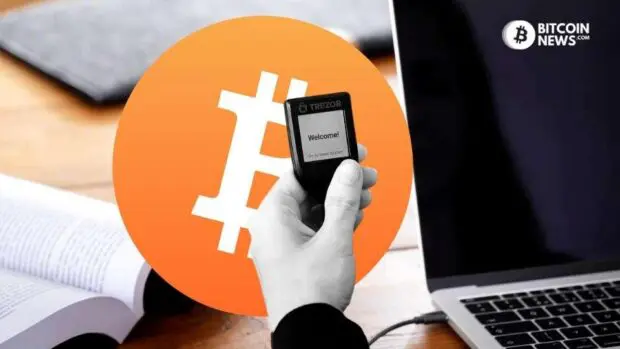As Wall Street firms race for bitcoin ETF approval, Bitcoin advocates urge participants to consider self-custody as a lower-cost alternative.
Bitcoin is a unique asset. Though it exists only in the digital realm, it is also a bearer instrument that does not require any third party to hold or own.
Related reading : ETF Filings Could Introduce Bitcoin To A $30 Trillion Market
Related reading : Bitcoin And Self-Custody In The Cashless Society
By taking custody of your bitcoin, you not only maintain exposure to price action, but also eliminate the slow bleed of management fees and the catastrophic risks that counterparties involve.
When withdrawing from an exchange, bitcoin holders are able to generate a wallet that only they control. The wallet is generated from a set of random words. Many wallets will generate these words for you, but for extra security, participants may elect to generate randomness themselves.
Common techniques for generation include coin flipping or rolling dice. Proponents of this technique posit that it is the only way to ensure true randomness in the wallet generation, eliminating trust in the software that would provide this randomness for you.
Depending on what type of wallet you are generating, you will either generate a 12- or 24-word string. These words comprise what is known as your private key. When entered into a Bitcoin wallet device or software platform, a unique address is created which allows you to receive bitcoin and custody it without counterparty risks.
The private key is also the mechanism which allows individuals to send bitcoin from their wallets. The words must be kept secret and serve as a backup for your wallet if your interfacing mechanism is ever lost, destroyed, or becomes inoperable.
There are numerous methods for backing up your keys. A common solution is Black Seed Ink, a company that sells metal etching plates to protect your seed words from water and fire, as well as technical failures from storing them online. There are several other companies (e.g., Titan) that sell metal backup plates in different forms as well.
The recommended method for interfacing with your keys is through a hard wallet, otherwise known as cold storage. There are a multitude of hardware devices that are available for purchase which store your private keys and allow you to interface with the Bitcoin network by sending bitcoin in a peer-to-peer fashion.
Related reading : Trezor Model T Review 2023: The Best Hardware Wallet For You?
Related reading : BlockStream Jade: Hardware Wallet Review
Popular bitcoin-only hardware devices include the Foundation Passport, ColdCard, and Blockstream Jade. Though some come with proprietary software interfaces, those are not required in order to use the devices. Open-source software solutions like Blue Wallet and Sparrow also exist as way to interface with Bitcoin’s open-source ledger.
Though this list is certainly not all-encompassing, it should be enough to begin your self-custodial journey into Bitcoin. Though daunting at first, self-custody is the only way to ensure your bitcoin is truly safe.
Luckily, there are personalities like BTC Sessions who have dedicated their lives to educating others on how to properly use these software and hardware applications. His video library can be found on YouTube and is an essential first step in developing your individualized plan for securing your bitcoin.
Read more on the subject :










